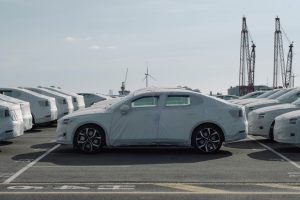The Tesla Model 3 and Model Y topped the EV sales charts in New Zealand in August.
The Motor Industry Association (MIA) reported 10,940 new passenger car and SUV registrations in New Zealand in August 2022, up 138.6% year-over-year. Last year, New Zealand’s new passenger cars and SUVs registrations only reached 4,585 units.
Fossil fuel vehicles still dominated New Zealand’s new car registrations in August. Toyota was in the lead with an 18% market share. Mitsubishi followed Toyota closely behind at 12% share, and Kia came in third with 11% market share.
Electric vehicle sales are steadily improving in New Zealand, with more than 2,500 pure electric units registered in August. Tesla took the lead in EV sales with 745 Model 3 units and 581 Model Y vehicles registered last month. The BYD Atto 2 with 448 registered units behind the Tesla Model Y.
TESLA MODEL Y DELIVERIES IN NZ
Tesla Model Y deliveries kicked off in mid-August. Teslarati spoke with a few Tesla reservation holders waiting for the NZ deliveries. One Tesla Model 3 couple shared their first impressions of the Model Y. They seemed pleasantly surprised by the Model Y’s build quality.
Time will tell if the Model Y eventually outsells the Model 3. Elon Musk predicted that the Model Y would be the best-selling vehicle of any category in the next few years. At the recent Shareholders Meeting, Musk claimed that the Tesla Model Y would be the world’s best-selling vehicle by revenue by the end of 2022. He forecasted that the Model Y would be the best-selling vehicle based on overall sales volume by 2023.
NEW ZEALAND’S CLEAN CAR DISCOUNT
New Zealand rolled out a Clean Car Standard and Clean Car Discount program to address the transportation sector’s CO2 emission levels and combat climate change. The Climate Change Response (Zero Carbon) Amendment Act 2019 requires NZ’s CO2 emissions to reach net zero by 2050.
New Zealand encourages buyers to purchase zero and low-emission light vehicles by providing rebates. At the same time, it discourages the purchase of high-emission vehicles with fees. As of April 1, 2022, zero to low-emission units are eligible for a rebate, while high-emission cars incur a fee.





